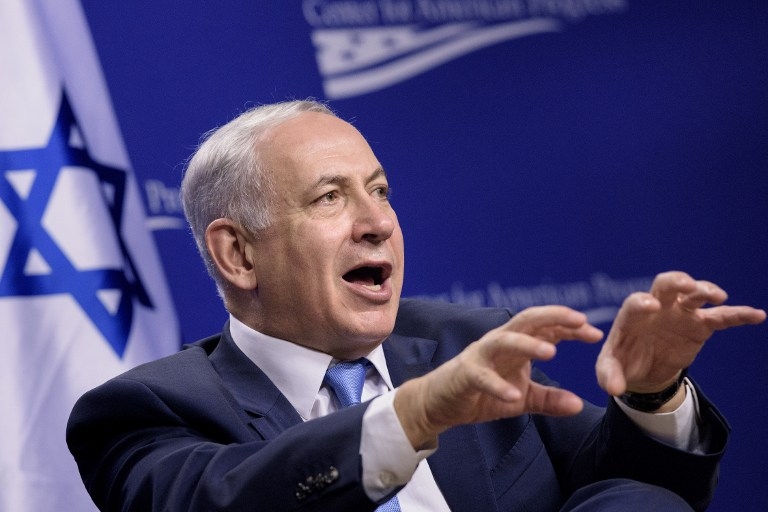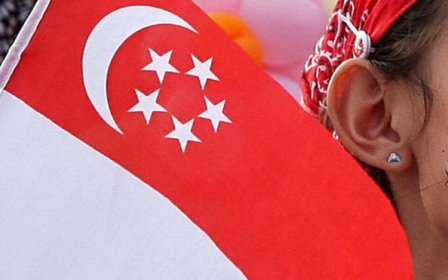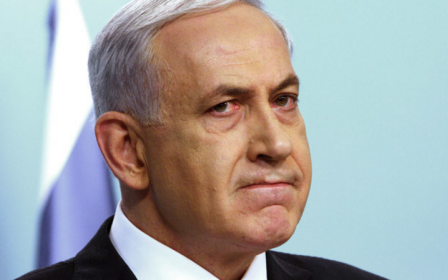Israeli diplomacy favours the strong-arm over the handshake

Diplomacy has been described by the author Robin Hobb as the velvet glove that cloaks the fist of power.
In Israel’s case, given its recent ultimatum issued to the Brazilian government to accept the appointment of a West Bank settler as ambassador or face a downgrading of diplomatic relations, it seems that the glove has been discarded.
This comes hot on the heels of the decision of Israel’s ambassador to the United States to provide his hosts with Christmas gifts sourced from occupied Palestinian and Syrian land. Such acts represent a not-so-subtle attempt to coerce foreign states into incremental, tacit acceptance of Israel’s colonial, expansionist project inside the occupied Palestinian territory.
To this extent, Israel’s conduct in the realm of international relations mimics the horrific treatment of Palestinian hunger strikers languishing within its prison system. It is a form of diplomatic force-feeding in which sovereign nations are made to stomach Israeli policies and positions which fly in the face of their own foreign policy, international law and human morality. It is a tactic of legitimisation-by-force; a favouring of the strong arm over the handshake in order to bring third-party narratives and agendas back in line with those of the Israeli State.
Sweden, for instance, has drawn Israel’s concerted ire more than once. In October 2014, following Sweden’s recognition of the right of the Palestinian people to self-determination and a state to call their own, then-Israeli foreign minister Avigdor Liberman counselled the Swedish government that “Middle East relations are more complex than a piece of self-assembled IKEA furniture”.
Then, just over 12 months later, the actions of Swedish Foreign Minister Margot Wallstrom were labeled by the Israeli government as “appallingly impudent” and as “demonstrat[ing] genuine hostility” following the her linking of the hopelessness felt by Palestinians at the hands of Israel’s almost 50 year-long military occupation with the upswing in violence seen inside the occupied Palestinian territories in recent months.
Such a link is far from being without rational foundation. To the contrary, it would appear a sound exercise of logic to suggest a causal relationship may exist between an occupation, so protracted that it virtually defies definition under existing models of international law, and acts of violence undertaken by members of the occupied population.
The reference to "hostility" is also instructive, framing disagreement as an act of aggression, and Prime Minister Benjamin Netanyahu utilised the same terminology in his October 2015 address to the United Nations General Assembly. Here, Netanyahu described the UN - an organisation with which Israel has long had decidedly fractious relations, and from which a multitude of reports have originated identifying Israeli war crimes and crimes against humanity – as being “obsessively hostile towards Israel”.
The United Nations is, of course, not a single, cognisant entity but a global collective, and for Netanyahu to allege hostility on its behalf is to instead draw attention to growing frustration with Israel among the international community.
Such frustration has recently manifested itself in a proposal from the French government to place international observers at the Al-Haram al-Sharif/Temple Mount complex in East Jerusalem as part of an attempt to preserve its status quo amid growing fears that the Israeli government is slowly exerting greater control over the third holiest site in Islam, fears that appear well-founded. Israel responded by summoning the French ambassador to a disciplinary hearing.
One month later, in November 2015, the European Union’s ambassador to Israel suffered a similar fate in the wake of the EU’s decision to adopt accurate labelling of goods originating from Israeli settlements inside Palestinian territory. The Israeli foreign ministry denounced this move as politically motivated and discriminatory, whilst a cabinet member, Yuval Steinitz, called it an act of “disguised anti-Semitism”. Shortly afterwards, Israel announced that the EU would be barred from any participation in what was left of the Middle East "peace process".
It appears, then, that Israel’s diplomatic model is one assembled around a central pillar of truculence, with little space for compromise, or even self-awareness. Criticism, regardless of its evidential basis, is met with ridicule, slander or threats of disengagement. Bizarrely, this treatment even extends to Israeli diplomats themselves, whose decision to strike in March 2014, following steady salary erosion, was condemned by the head of the foreign ministry as “a miserable decision showing that they have lost their senses entirely”.
Meanwhile, concerning its interaction with the UN, a policy of engagement by way of perpetual confrontation appears to have been adopted. Indeed, it is some measure of the disdain with which the UN and its stated purpose of promoting international cooperation is regarded by Israel that Netanyahu appointed Danny Danon – a fervent devotee of the Israeli hard right who has called for the annexation of the West Bank and establishing of an apartheid state, and whom Netanyahu had previously sacked from the Israeli cabinet for repeated verbal attacks on the leadership – as Israel’s envoy to the organisation.
Israeli newspaper Haaretz suggested Danon’s appointment would throw “Israel off the diplomatic cliff”, whilst senior figures within Israeli politics have voiced their alarm at the government’s approach to public diplomacy and the resulting crisis in the state’s international standing. Yet, if Israel adopts this domineering and dismissive stance towards powerful actors on the international stage, what hope is there for meaningful and productive discussion with the Palestinians?
More specifically, what prospects are there for a successful solution – and by this, we should mean a just and durable solution - to the Israel/Palestine question, if pursued through political "negotiations" between the two primary parties?
Such negotiations would take place in the context of a gross asymmetry in power, featuring on one side a recalcitrant, nuclear-armed rogue state, backed by the most powerful nation on Earth, and on the other, Palestine - an entity financially crippled by the occupation and rendered largely powerless as vast swaths of its land are unlawfully fractured and annexed by the Israeli government for settlement construction.
Efforts by the Palestinian Authority to protect the fundamental human rights of its people through formal legal channels have been roundly savaged by Israel, with the former’s accession to the International Criminal Court in January 2015 labelled an act of “diplomatic terrorism” by the occupying power, and followed by the latter’s freezing of the Palestinian Authority’s tax revenues.
Though the term “diplomatic terrorism” is itself logically problematic and should not go unchallenged, such a term would surely be of greater applicability to Israel’s attempts to coerce Brazil into accepting as ambassador an individual whose very presence in his home community constitutes a grave breach of the Fourth Geneva Convention, for instance, than to Palestine’s seeking of accountability for perpetrators of international crimes.
To return to Robin Hobb’s observation, then, in its adoption of a zero-sum, shock-and-awe form of public diplomacy, Israel appears to have abandoned any pretence of a "velvet glove" and simply concluded that the fist will suffice.
This invective-spouting, strong-arming brand of international relations has proven detrimental to the state’s global standing, but it also offers a truly grim prognosis for any peace process that prioritises negotiations with Israel above an objective application of international law. Accordingly, influential states, regional bodies and the United Nations must ensure that in any engagement with Israel principle must prevail over the application of force.
-Simon Reynolds is the Legal Advocacy Coordinator for BADIL Resource Centre for Palestinian Residency and Refugee Rights, based in Bethlehem.
The views expressed in this article belong to the author and do not necessarily reflect the editorial policy of Middle East Eye.
Photo: Israeli Prime Minister Benjamin Netanyahu speaks at the Center for American Progress 10 November, 2015 in Washington, DC (AFP).
New MEE newsletter: Jerusalem Dispatch
Sign up to get the latest insights and analysis on Israel-Palestine, alongside Turkey Unpacked and other MEE newsletters
Middle East Eye delivers independent and unrivalled coverage and analysis of the Middle East, North Africa and beyond. To learn more about republishing this content and the associated fees, please fill out this form. More about MEE can be found here.





